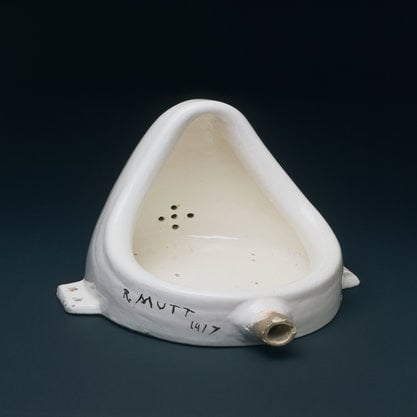Article
Taeuber, Sophie (1889–1943) By Obler, Bibiana
Article
Artist Sophie Taeuber’s career spanned a variety of movements, including Dada and Constructivism, and media, such as textile arts, interior design, architecture, painting, and sculpture. Although based in Switzerland for most of her life, she was born a German citizen, became Swiss around 1905, and French in 1926. She received a progressive education at Wilhelm von Debschitz’s Teaching and Experimental Studios for Applied and Fine Arts, Munich (1910–1914), with a break in 1912–1913 to study at the School of Applied Arts, Hamburg. From 1916–1929 Taeuber was a professor at the Zurich School of Applied Arts, teaching textile design and weaving. Her turned-wood puppets and set designs for the play King Stag (1918), commissioned for the Zurich Marionette Theater, garnered critical acclaim. In addition to establishing a reputation as an innovative applied artist, Taeuber participated in Dada from its inception in 1916, partly as a result of her friendship with Hans Arp, whom she met in 1915, and also through her membership in Rudolf von Laban’s dance troupe, which performed at various Dada events. After World War I, Taeuber increasingly turned to interior architecture and fine art, leaving the applied arts almost entirely behind once she moved to Paris in the late 1920s.

